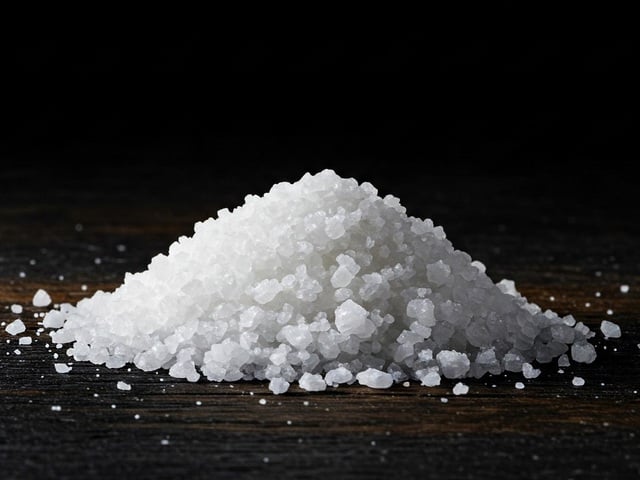To ensure good health, people should eat salt in moderation. The World Health Organization (WHO) recommends not eating more than 5 grams of salt per day, while the American Heart Association says the ideal level is about 3.8 grams of salt per day, according to the health website Medical News Today (UK).

Salt is rich in sodium, which plays a very important role in health.
PHOTO: AI
If you eat too little salt, your body may experience the following problems:
Electrolyte imbalance
Electrolytes such as sodium, potassium, calcium, and magnesium are electrically charged minerals that play an essential role in vital functions such as nerve transmission, muscle contraction, and fluid balance in the body. Electrolyte imbalances disrupt these processes, leading to a variety of complications.
Salt is rich in sodium. Sodium is especially important in regulating the amount of water in and around cells. When sodium is deficient, cells can swell, leading to symptoms ranging from mild nausea and headaches to severe seizures and coma.
Eating less salt can lower blood sodium.
Hyponatremia is a condition in which the sodium concentration in the blood is lower than normal, causing water to rush into the cells and cause them to swell. This is especially dangerous when brain cells swell. The skull does not have space to expand, which can easily lead to neurological disorders such as confusion, seizures, and in severe cases, coma.
Blood pressure drops too low
The sodium in salt helps maintain blood pressure by regulating the amount of fluid in the body. Sodium also retains water, ensuring that there is enough blood volume to maintain stable blood pressure. If you take in too little sodium, your blood volume can decrease, leading to low blood pressure. Symptoms include dizziness and fainting.
Decreased nerve and muscle function
Sodium is essential for nerve impulse transmission and muscle contraction. This mineral helps create and transmit electrical signals between nerve cells and helps muscles contract and relax. When sodium is deficient, people may experience cramps, muscle weakness, and muscle spasms. The nervous system is also affected, leading to symptoms such as confusion, lethargy, and seizures.
Daily salt intake is considered too low when it is lower than 3.8 grams of salt per day. This level may not provide enough sodium, a mineral that makes up 40% of salt, to maintain normal physiological functions of the body. If you consume less than 2.5 grams of salt per day, you are at high risk of hyponatremia, low blood pressure, and body dysfunction, according to Medical News Today .
Source: https://thanhnien.vn/muoi-an-nhieu-nguy-hiem-an-qua-it-cung-khong-tot-185250405132523591.htm



![[Photo] "Beauties" participate in the parade rehearsal at Bien Hoa airport](https://vstatic.vietnam.vn/vietnam/resource/IMAGE/2025/4/11/155502af3384431e918de0e2e585d13a)


![[Photo] Looking back at the impressive moments of the Vietnamese rescue team in Myanmar](https://vstatic.vietnam.vn/vietnam/resource/IMAGE/2025/4/11/5623ca902a934e19b604c718265249d0)
















![[Photo] Summary of parade practice in preparation for the April 30th celebration](https://vstatic.vietnam.vn/vietnam/resource/IMAGE/2025/4/11/78cfee0f2cc045b387ff1a4362b5950f)





























































Comment (0)